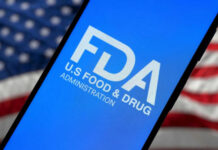
Chronic insomnia in older adults has been exposed as a silent accelerator for dementia risk and premature brain aging, according to pivotal new findings published by Mayo Clinic researchers.
Story Snapshot
- Mayo Clinic study reveals older adults with chronic insomnia face a 40% higher risk of dementia over 5.5 years.
- Chronic insomnia accelerates brain aging by up to 4 years and increases Alzheimer’s-related changes.
- Findings position insomnia alongside diabetes and hypertension as a modifiable risk for cognitive decline.
- Research drives calls for new screening protocols and intervention strategies in geriatric healthcare.
Mayo Clinic Study Uncovers Dangerous Dementia Link
The maximum wake-up call for American families came with the Mayo Clinic’s published research in Neurology, showing older adults suffering from chronic insomnia are at a dramatically increased risk of developing dementia or mild cognitive impairment compared to their well-rested peers.
The study followed 2,750 cognitively healthy adults with an average age of 70, finding that those with chronic sleep disruption faced a 40% greater risk of dementia over a 5.5-year span.
Notably, chronically sleep-deprived participants exhibited brain aging 3.5 to 4 years beyond their age, visible through advanced imaging. These scans revealed substantial increases in white matter hyperintensities and amyloid plaque, changes in the brain that are known precursors to Alzheimer’s disease and other forms of dementia.
Research concludes that chronic insomnia’s impact rivals established risk factors like hypertension and diabetes. Family caregivers and medical providers are urged to recognize and address sleep health as a decisive, modifiable factor in dementia prevention.
Dementia risk nearly doubles among those with common sleep disorder, study finds https://t.co/weXVvs3LOy #FoxNews
— Fearless45 (@Fearless45Trump) September 18, 2025
This new data signals a clear shift: insomnia, once dismissed as a quality-of-life issue, demands attention as a clinical priority. Millions of older Americans, up to 16%, experience chronic insomnia, making the findings urgently relevant.
With dementia rates climbing and healthcare resources strained, pinpointing manageable risk factors is essential for reversing America’s cognitive health crisis.
Dr. Diego Z. Carvalho, principal investigator at Mayo Clinic, underscored the urgency by stating, “The size of this association is significant from a public health perspective, particularly for a disorder that is so prevalent in older adults.”
The call to action is unmistakable—routine sleep assessments and targeted interventions belong in every geriatric medical examination.
Historical Debate Finally Settled by Science
For years, the connection between sleep disturbances and neurodegeneration lingered in uncertainty. Earlier research hinted at a relationship, but conflicting findings left doctors and families without definitive guidance.
Most prior studies confirmed that insomnia impaired everyday cognition; however, few could clarify the magnitude of risk or pinpoint physiological changes tied to sleep loss.
The Mayo Clinic’s study is distinguished by its size, duration, and the integration of annual cognitive testing with advanced brain imaging.
Experts are now crediting insomnia with a risk on par with diabetes and hypertension—conditions that routinely attract attention from health systems and policy makers, yet sleep remains overlooked.
On behalf of aging advocacy, this study transforms legislative and clinical debate about ways to protect brain health in America’s seniors.
Several key voices in the medical community weighed in. Dr. Marc Siegel, a well-known commentator, applauded the research for providing concrete evidence but cautioned the public that causality is not yet fully established, even as the association grows stronger with each new study.
Siegel’s view reflects the need for further investigation, but concedes the days of ignoring sleep disturbance have ended. The study’s longitudinal scope and use of imaging biomarkers set a new gold standard for dementia-prevention research.
Treatment Implications and Conservative Concerns
Advocates for American freedom and family values will recognize the benefits: empowering seniors to address a modifiable dementia risk respects the individual’s right to choose preventive care, supports families managing health costs, and relieves pressure on government spending.
Chronic insomnia has, until now, rarely appeared in official dementia guidelines; this omission jeopardized older Americans who expect science-driven leadership from their government and medical experts.
With public health turning its eye toward sleep medicine, conservative Americans will appreciate a move from blanket bureaucracy to personalized prevention programs, ensuring taxpayer dollars serve real solutions over ideological agendas.
The push to re-balance healthcare priorities is expected to include expanded insurance coverage for proven sleep treatments—including cognitive behavioral therapy and medical screening—and a curb on frivolous spending unrelated to measurable health outcomes.
Expert Perspectives and Ongoing Debate
The Mayo Clinic study faces one caveat: researchers and commentators agree that while the correlation is robust, further research must clarify how insomnia directly causes neurodegenerative change.
Industry experts cite the need to uncover underlying mechanisms—whether insomnia leads to amyloid buildup, vascular alteration, or simply amplifies pre-existing vulnerabilities.
Despite diversity in viewpoint, most professionals now concur: ignoring chronic insomnia invites avoidable dementia risk and unnecessary suffering among vulnerable older adults.
Calls for expanded clinical trials, more inclusive research, and better physician education about sleep disorders reflect the study’s far-reaching implications.
Cross-referencing multiple peer-reviewed sources secures the study’s credibility. Medical News Today, Fox News Digital Health, published NIH meta-analyses, and the Alzheimer’s Information portal all corroborate the Mayo Clinic findings, underscoring the reliability of results.
As the debate shifts toward implementing prevention, older Americans—and the lawmakers who serve them—face a choice between proven interventions and bureaucratic delay.
Given the alignment with conservative priorities of freedom, family care, and responsible government, the new evidence supporting sleep health emerges not just as science but as a call to combat dementia with courage and common sense.
Sources:
National Institutes of Health (PMC)
Alzheimer’s Information (Alzinfo.org)


















